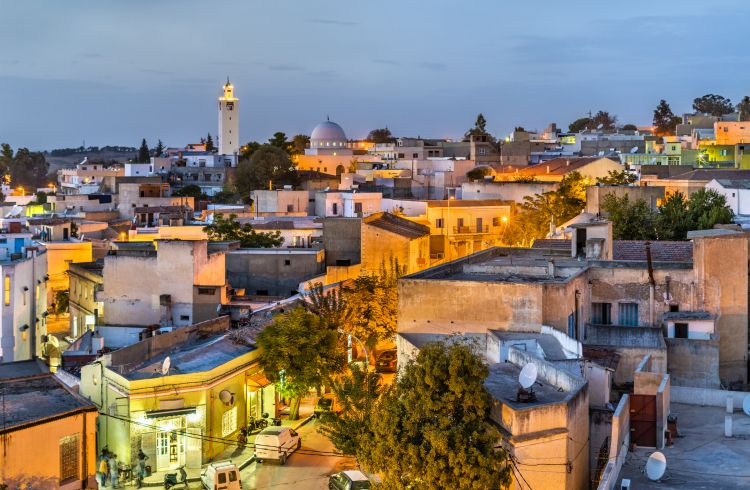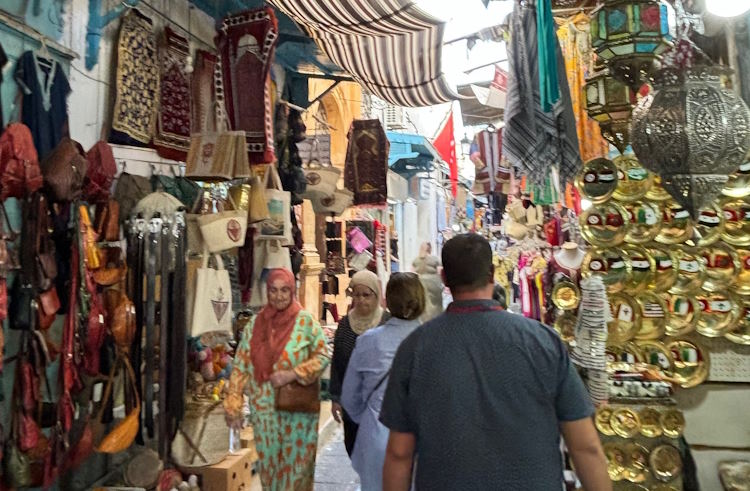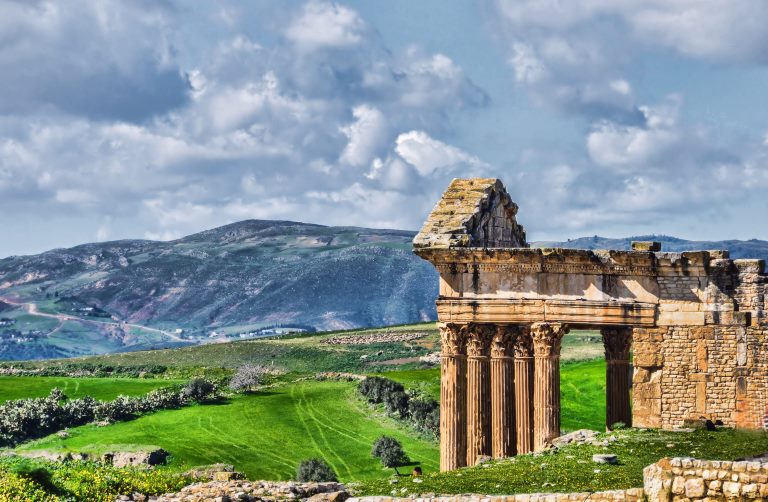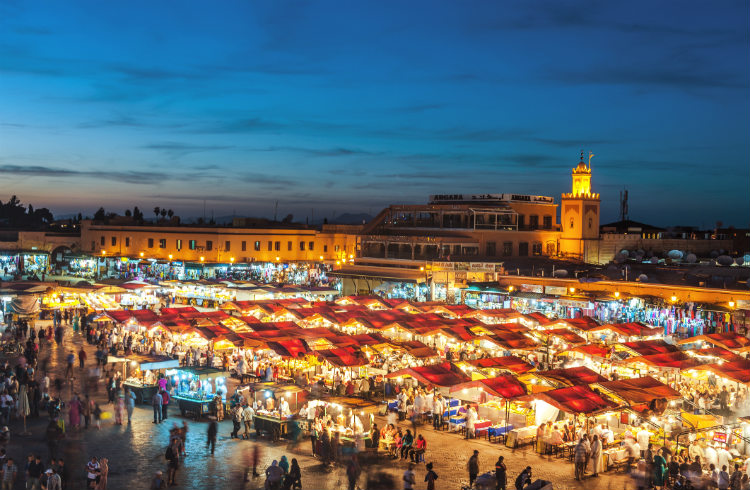Is Tunisia Safe to Visit? 9 Travel Safety Tips
How safe is Tunisia for travelers? We answer your questions about crime, etiquette, and safety for families, women, and LGBTQ+ visitors.
 Photo © Getty Images/Leonid Andronov
Photo © Getty Images/Leonid Andronov
With a landscape that runs from Mediterranean coastal zones to vast sweeps of Sahara, from densely-populated cities to Berber villages and Roman ruins, Tunisia is gaining popularity as a destination – it saw 9.37 million visitors in 2023. But visiting here is not without risks. Here’s what you need to know to keep your trip to Tunisia trouble-free.
- Is Tunisia safe?
- Crime in Tunisia
- Is Tunisia safe for families?
- Are woman travelers safe in Tunisia?
- Is Tunisia LGBTQ+ friendly?
- Local laws and etiquette tips
- Food safety and water hygiene in Tunisia
- Transport safety in Tunisia
- Staying safe outdoors in Tunisia
Is Tunisia safe?
Tunisia is ranked 36 on the Global Terrorism Index, slightly lower than the UK and France and significantly lower than the US.
But terrorism is a risk, unfortunately. In 2015, three major incidents, claimed by the Islamic State, took the lives of dozens of people: an attack at the Bardo National Museum in Tunis, one at a beach hotel in Sousse, and an explosion on a bus carrying members of the president’s security guard. Nearly 60 tourists died in the Bardo and Sousse attacks.
While more recent attacks have targeted police or foreign embassies rather than tourists, and security has been beefed up in major cities and resorts, travelers should still exercise caution.
Several state departments have issued do-not-travel warnings for areas along the borders with Algeria and Libya and for Kasserine governorate due to the threat of terrorism and kidnapping.
A terror attack in the more touristed areas of Tunisia can’t be ruled out, but overall, the country should be considered a safe place to vacation.
Crime in Tunisia
According to Statista, the crime index for Tunisia in 2023 was 44.6 (with 0 being the lowest and 100 being the highest.) It has increased somewhat in recent years but overall Tunisia has the lowest levels of crime in North Africa.
Crimes against tourists tend to be opportunistic incidents, such as pickpocketing and bag-snatching. Care should be taken in crowded places. Exercise the same precautions as at home and remain alert in souks and busy city shopping streets.
- Wear handbags strapped cross-body-style close to your body, or opt for money belt that can be worn under clothing.
- Carry only small amounts of cash to cover what you need.
- Keep ID, credit cards, passports, driver licenses and other valuables in the hotel safe.
- Request small denomination notes in currency to avoid attracting attention with large notes.
- Pickpockets often rely on catching you off guard, so stay alert in markets and shopping streets.
- In restaurants and cafes, keep your handbag off the floor or back of the chair – keep it on your lap.
- Don’t walk alone after dark – book a taxi and ask the driver to take you right to the door.
- Protests and demonstrations can turn ugly quickly, and are best avoided – even those that are meant to be peaceful.
- Be aware that romantic overtures are often more about getting money, a European visa and a ticket out of the country, than about love.
- Unless you’re an expert, avoid buying “antiques”, as they may be just poorly-made trinkets with a coating of dust. (And be aware that removing antiques without government permission can land you in trouble).
Emergency numbers
- Police emergency: 197
- Fire department: 198
- Ambulance: 190
Is Tunisia safe for families?
Societal values place family life at the heart of Tunisian culture, and families make up a large percentage of all holidaymakers.
Clean, safe waters, sandy beaches, camel rides in the desert, and water parks offer plenty of options for families with children. Few countries this easily accessible from Europe can compete on affordability, not to mention warm waters, sunny skies, and 800mi (1,200km) of coastline.
Are women travelers safe in Tunisia?
Tunisia is overall a safe place for women travelers, though harassment can sometimes occur. While many women in larger cities wear Western clothing and don't wear headscarves, Tunisian society values modesty.
To avoid stares and unwanted attention, women should opt for loose-fitting outfits that cover shoulders, cleavage, and midriff. Shorts and tight trousers should be avoided. Knee-length skirts are best. Outside of the main tourist resorts, and capital city Tunis, women should avoid going out alone after after dark.

Is Tunisia LGBTQ+ friendly?
Same-sex relationships are illegal in Tunisia and punishable by up to three years in prison. There are no anti-discrimination laws in place.
Despite this, Tunisia does have an active LGBTQ+ community, staging an LGBTQ+ film festival in Tunis in 2018 and 2019. Gay-friendly bars exist, but aren’t easy to find. Public displays of affection and talking publicly about homosexuality are taboo.
Local laws and etiquette tips
- Formal greetings are characterized by a handshake followed by a light touch of the heart with your right hand. Foreign men should wait for Tunisian women to offer handshakes.
- Don't handle food with your left hand, especially if eating from a communal dish as the left hand is considered unclean, only for toilet duties.
- Avoid eating, drinking and smoking in public during the month of Ramadan.
- When visiting mosques, mausoleums and other religious sites, women should wear headscarves, long sleeves, and ankle-length skirts or pants. Men should wear long pants. At some sites such as the Great Mosque in Kairouan, robes and scarves can be rented at the entrance.
- It is legal to purchase and consume alcohol in Tunisa, but alcohol sales in supermarkets are prohibited on Fridays and many establishments won't sell alcohol during Ramadan. Alcohol should not be consumed in public places such as parks.
Food safety and water hygiene in Tunisia
- Tap water is safe to drink throughout Tunisia
- Avoid buffet food that has been standing for some time
- Squat toilets are common
Transport safety in Tunisia
According to the World Health Organization (WHO), Tunisia has a high road traffic mortality rate compared to Europe, North America or Australia. Most visitors are happy to allow experienced local drivers to transport them over potholes and poorly lit roads.
If you choose to drive yourself, avoid driving at night or in rainy conditions. Cars travel on the right, seat belts are mandatory and a valid driver's license, registration documents and insurance documents should be carried at all times.
Taxis are plentiful and cheap and can be booked easily using ride-hailing apps like Bolt or Heetch.
Staying safe outdoors in Tunisia
Climate change has led to increased summer temperatures, with highs reaching above 122°F (50°C).
Dehydration is the biggest danger when taking part in activities and sports in Tunisia. Carry water with you at all times and book excursions with accredited Tunisia Ministry of Tourism licensed guides who carry first aid kits and GPS.
Related articles
Simple and flexible travel insurance
You can buy at home or while traveling, and claim online from anywhere in the world. With 150+ adventure activities covered and 24/7 emergency assistance.
Get a quote

3 Comments
there is no black Henna there is only red the black fake with ppd.
Ive just been in Tunisia and, after travelling to 50 countries, including neighbouring Morocco, have NEVER been ripped off so much and so frequently. From taxi drivers (expected) to cafe owners, to "tour guides" to even a train station staff member telling me the wrong price then refusing to give me change when I pointed out the value on the ticket. Sousse, Sidi Bou Said, and Tunis Medina particularly bad.
Don't bother unless you can afford private day trips either, the infrastructure is atrocious. So is it safe? Yes, at the moment. But the people there are simply abhorrent.
The content seems like it is referring to Tunisia maybe in 1920, with a lot of false and misleading information. Please review this article!